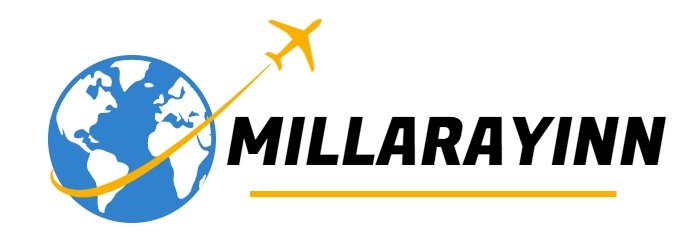As the world moves ever-onward, we too must learn to move with it. The art of adaptation is a skill that can make a world of difference in both your personal and professional life. Through travel, we have the opportunity to expand our comfort zone by consciously working to confront and embrace the unknown. In this article, we will explore how exploring unfamiliar places can push you to take the leap of faith and adapt to the ever-changing world.
1. Exploring the Benefits of Expansion Outside Your Comfort Zone
When it comes to personal and professional development, there’s nothing more important than exploration. Gaining knowledge that lies beyond your comfort zone can lead to incredible insights, new discoveries, and valuable contacts. Taking risks and pushing yourself to explore further are invaluable skills to have in any industry.
The Right Mindset
In order to gain the most out of exploring beyond your boundaries, you must have the right mindset and attitude. Consider your own wants and needs, and whether you’re truly prepared to take on the unfamiliar. Think about how others have benefited from a similar challenge and what they have achieved. This can help give you the motivation and confidence to set out and explore.
Being Open
One of the most important elements of fulfilling your potential is to be open-minded. Being willing to learn and unlearn can help you make connections that would otherwise be missed, and provide opportunities for growth that may never have been considered. Not being stuck in your own ideas and practices allows you to expand your knowledge on working styles, theories, and overall practices.
Taking Actionable Steps
The most important part of exploring outside of your comfort zone is to take actionable steps. This means taking the time to research new organizations, industries, and people. You can also explore by attending events, conferences, and workshops. Networking is also invaluable in order to gain knowledge from others. Taking steps such as these can give you a great insight into different aspects of your industry and can help you reach new heights.
- Take the time to do research
- Attend seminars, events, and workshops
- Network and make connections
- Be open-minded and willing to learn
- Have the right attitude and mindset
By expanding your knowledge beyond your comfort zone, you can develop in ways that you never thought possible. Taking the time to develop these skills can help you grow personally and professionally. By taking the right action today, you can be on your way to experiencing the benefits of personal and professional expansion.
2. Unlocking the Art of Adapting to New Environments
- Understand the culture – Acquiring an understanding of the culture, such as customs and etiquette, is essential for adapting to a new environment. Taking the time to learn about the language spoken, the religious beliefs and even what to wear for various occasions will help you in navigating your way around and forming relationships.
- Adapt to the environment – Such adaptation is key for any successful move to a new environment. Altering your lifestyle and adjusting to the people and customs of the new place are great ways of adapting quickly. This is where observation comes in as paying attention to the trends and patterns in the environment can help you to make more informed decisions as you acclimate.
- Develop a network of contacts – networking can be invaluable when you’re trying to settle into a new environment. Building social relationships with colleagues and those in the local neighborhood will help you to feel more at home and make it easier for you to understand the culture and way of life of the new environment.
- Gain understanding through conversation – a great way to learn more about your new environment is to take advantage of conversational opportunities. Whether it is talking to local residents or colleagues at work, taking the time to understand the values and beliefs of the people there will help you get an accurate understanding of the place you’ve moved to.
- Be open to experiences – open yourself up to new experiences that will aid your transition. Make sure to try the local food, take part in celebrations and attend events. All these experiences will not only make you feel more at home in your new environment, but also help you gain a better understanding and appreciation of the culture.
Conclusion:
Adapting to new environments may take some time, but by taking the time to properly understand the culture, develop a network of contacts and being open to new experiences, you can unlock the art of adapting to new environments and ease your transition.
3. Discovering How Traveling Increases Flexibility and Resiliency
If you want to increase flexibility and resiliency to life’s challenges, travel is an excellent way to develop these qualities. By removing yourself from your usual environment and exploring new destinations, new cultures, and new perspectives, you’ll grow and learn to use your mental and emotional resources more effectively. Here are three ways you can use travel to build resiliency and flexibility:
- Self-Awareness: Traveling helps you to be more aware of who you are, what you can do, and how you react to different situations. It provides a perfect platform to pause, reflect, and gain a deeper understanding of yourself.
- Adaptability: When visiting a new place, you’ll be exposed to unfamiliar customs and language. You may even have to cope with unexpected changes in the journey. All these experiences force you to become more adaptable.
- Outlook: Exploring the world gives you different lenses to look at life. With each new place you visit, you will gain a better appreciation of where you come from. The new perspectives you gain enrich and enlighten your life.
At a physical level, travel can also improve your flexibility, as it often requires you to move in different ways. For example, doing yoga on a beach, biking along a mountain path, or kayaking in a secluded lake during your travels will help increase your physical flexibility.
On a psychological level, exploring a new city or region will boost your mental flexibility. Learning new language, tasting different foods, engaging in unfamiliar activities—all of these experiences can lead you to think outside of the box and jumpstart your problem-solving skills.
Traveling is a great way to cultivate flexibility and resiliency. Just remember to keep an open mind and be ready to embrace whatever opportunities come your way.
4. Becoming Comfortable Being Uncomfortable through Experiential Learning
The phrase “step out of your comfort zone” has become ubiquitous in self-improvement circles – and for good reason. We don’t grow and develop if we avoid activities that make us feel uneasy. To move forward and attain our goals, we must bravely and willingly embrace discomfort. Experiential learning can be a powerful tool in helping us on this journey.
Experiential learning is defined as learning through experience. This type of learning helps us tackle unfamiliar tasks and gain new skills. It also teaches us to become comfortable with vulnerability and accepting guidance from an experienced teacher. By participating in experiential learning activities, we can cultivate adaptability and flexibility. This can help cut through our fear-based reactions and allow us to develop both mentally and emotionally.
The goal of experiential learning is to provide a safe space in which we can explore different perspectives and take chances. It can include:
- Team-Building Exercises – Working with a group builds communication and collaborative skills, encourages responsibility, and improves collaboration.
- Creative Projects – Using artistry, writing, and theatre to express ourselves and tell our stories can open us to new possibilities.
- Outdoor Adventure Activities – Activities like hiking, kayaking, and camping help us explore natural surroundings and push us beyond our comfort zone.
Experiential learning challenges us to break our routine and take on new endeavors. It helps dissipate our fear of trying by allowing us to gain confidence and courage in our own abilities. Making the decision to embrace discomfort through experiential learning can be scary, but the results are well worth it.
Adapting to new environments is an invaluable skill that can help us find greater peace and confidence in our lives. Whether you’re traveling to a new city or just experiencing someplace you’ve already visited, adapting and stretching your comfort zone can help you unlock previously undiscovered opportunities. So as you plan your next journey, keep in mind the art of adaptation and see what possibilities might open up for you.



